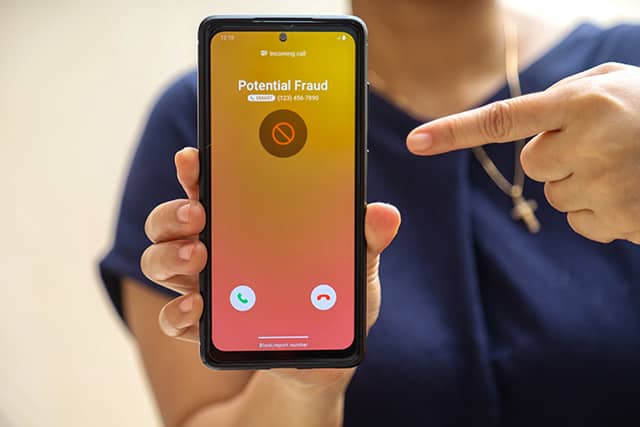
Can Debt Collectors Call Family Members?
Dealing with debt collectors can be a stressful experience, and it becomes even more complicated when they start reaching out to your family members. Many people wonder, “Can debt collectors call family members?”
The short answer is: it depends. The rules governing debt collection practices are nuanced, with both federal and state laws playing a role in what collectors can and cannot do.
State and Federal Debt Collection Laws
The Fair Debt Collection Practices Act (FDCPA) is the primary federal law that regulates how debt collectors can interact with consumers. This law sets boundaries on collection tactics and provides important protections for individuals dealing with debt collectors.
In Mississippi, we also have state-specific laws that work alongside the FDCPA to safeguard consumers. The Mississippi Consumer Protection Act adds another layer of protection, prohibiting unfair or deceptive practices in consumer transactions, including debt collection.
Can Debt Collectors Legally Contact Family Members?
The answer isn’t a simple yes or no. Under certain circumstances, debt collectors are allowed to contact family members, but there are strict rules they must follow.
Generally speaking, debt collectors can contact third parties, including family members, for very limited purposes. These include:
- Locating the debtor
- Discussing the debt of a deceased person with the executor or administrator of the estate
- Contacting a co-signer on the debt
However, even in these cases, there are significant restrictions on what debt collectors can say and how often they can make contact.
Specific Scenarios Involving Family Contact
Let’s break down some common scenarios where debt collectors might try to reach out to your family:
Locating the Debtor
If a debt collector is having trouble finding you, they may contact your family members to obtain your address, phone number, or place of employment. However, they’re only allowed to do this once per family member, and they can’t disclose that you owe a debt.
For example, a debt collector might call your sister and say, “We’re trying to locate John Doe. Do you have their current contact information?” They can’t say, “John Doe owes us money, and we need to find him.”
Discussing a Deceased Person’s Debt
If you’ve passed away, debt collectors may contact your family members who are authorized to handle your estate. This could be the executor named in your will or an administrator appointed by the court. In these cases, the debt collector can discuss the specifics of the debt, but only with the person legally responsible for settling the estate.
When a Family Member is a Co-signer
If your family member co-signed on a loan or credit card with you, they’re equally responsible for the debt. In this case, debt collectors can contact them directly about repaying the debt. However, they still must follow the rules set forth in the FDCPA regarding appropriate times to call and frequency of contact.
Protecting Your Family from Debt Collector Harassment
While debt collectors have some leeway to contact family members in specific situations, they absolutely cannot harass your family. The FDCPA prohibits debt collectors from using unfair, deceptive, or abusive practices.
Here are some red flags that indicate a debt collector is crossing the line:
- Repeatedly calling your family members after being told not to
- Discussing your debt with family members who aren’t legally responsible for it
- Using threatening or abusive language
- Calling at unreasonable hours (before 8 a.m. or after 9 p.m.)
If you believe a debt collector is harassing your family, document every interaction. Keep a log of calls, including dates, times, and what was said. This information can be crucial if you need to file a complaint or take legal action.
Your Rights When Debt Collectors Call
Whether they’re contacting you or your family members, debt collectors must adhere to certain rules. Here’s what you need to know about your rights:
Verifying the Debt
You have the right to request debt verification. Within five days of first contacting you, the debt collector must send a written notice stating the amount of the debt, the name of the creditor, and your right to dispute the debt.
Requesting Communication Cessation
You can request that a debt collector stop contacting you. This request must be made in writing, and once received, the debt collector can only contact you to inform you of specific actions, like filing a lawsuit.
Disputing Inaccurate Information
If you believe the debt is inaccurate or you don’t owe it, you have the right to dispute it. The debt collector must then cease collection activities until they provide verification of the debt.
Special Considerations for Different Types of Debt
It’s worth noting that different types of debt may have specific rules or considerations:
Credit Card Debt
Credit card debt is typically unsecured, meaning there’s no collateral backing it. Debt collectors pursuing credit card debt must still follow the FDCPA, but they may be more aggressive in their collection efforts because they can’t repossess any property.
Student Loans
Federal student loans have special rules. For instance, the government can garnish your wages or seize your tax refunds without a court order. However, private student loan collectors must follow the same rules as other types of debt collectors.
Medical Debt
Medical debt has become a significant issue for many Americans. In Mississippi, there are no specific laws governing medical debt collection beyond the federal FDCPA and state consumer protection laws. However, it’s worth noting that medical debts are often more negotiable than other types of debt.
Responding to Debt Collectors
When dealing with debt collectors, whether they’re contacting you or your family members, it’s essential to approach the situation strategically:
- Don’t ignore the debt. Even if you believe it’s not valid, it’s better to address it head-on.
- Communicate in writing whenever possible. This creates a paper trail and can help prevent misunderstandings.
- Be cautious about what information you provide. Don’t give out personal financial information unless you’re sure you’re dealing with a legitimate debt collector.
- Consider negotiating a settlement. Many debt collectors are willing to accept less than the full amount owed, especially on older debts.
Preventing Future Issues with Debt Collectors
While it’s important to know how to handle debt collectors, the best strategy is to avoid dealing with them altogether. Here are some tips:
- Manage your debts responsibly. Try to stay current on payments and communicate with creditors if you’re having difficulties.
- Regularly monitor your credit report. This can help you catch potential issues early.
- Understand your financial rights and obligations. Knowing the laws that protect you can help you avoid falling victim to predatory practices.
So, while debt collectors can contact family members under certain circumstances, there are strict rules governing these interactions. If you’re dealing with aggressive debt collectors or you’re concerned about your rights, seek professional help.
At Ware Law Firm, we’re committed to protecting consumers from unfair debt collection practices. Our team has extensive experience in consumer protection law and can guide you through the process of dealing with debt collectors. Whether you need help understanding your rights, disputing a debt, or taking legal action against abusive collectors, we’re here to help.
Don’t let debt collectors intimidate you or your family. Reach out to Ware Law Firm today for a consultation and take the first step towards financial peace of mind.




